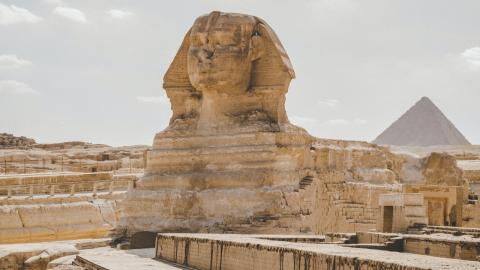Egypt doesn't have a monopoly on pyramids. China has such a heritage, too: some forty such monuments exist in the Xi'an region, capital of Shaanxi Province, located in the heart of the country. Dozens of them, which we owe to the emperors of the Qin and Han dynasties, whose reigns successively spread from the year 221 BC to the year 220.
Discover our latest podcast
Spread along the Wei He River, these pyramids stand out - some of them - due to an astonishing configuration: their four faces are oriented towards four cardinal points. A perfect orientation, which doesn't grace many millennial monuments. "Anomalies" that an Italian researcher - Giulio Magli - seems to have managed to explain, as revealed by his works, published recently in the journal of Archaeological Research in Asia.
A revealing database
The specialist began his work by collecting valuable and precise data: satellite images on one hand, but also surveys done directly in the field. He thoroughly analyzed the orientation of the base of each of the pyramids, especially to detect a possible link between each of them.
The Italian researcher's work therefore made it possible to distinguish two families of pyramids: the first includes the monuments that are perfectly aligned on four cardinal points, and a second, whose members are all slightly offset from the North. A common point in this second group: the pyramids that compose it all have the same deviation: a slight shift to the west when viewed from the front.
So, an architectural error? Imprecise measurement tools? The compass, invented in this country, was indeed in its infancy... But for Giulio Magli, the answer is neither: the explanation is elsewhere. The reason for this voluntary "shift" is ultimately relatively subtle.
From one North Pole to another...
The emperors, at the beginning of the construction of the pyramids, classified the second group of monuments, purposely orienting their architectural works not towards the North Celestial Pole - a point in the sky around which stars appear to turn, but which, at the the time, corresponded to no star - but towards the celestial body that would correspond to it in the future: Alpha Ursae Minoris, or the Little Bear. Or, more prosaically, the North Star.
The direction of the earth's axis of rotation varies very slowly according to a mechanism called "precession of the equinoxes". A phenomenon well known to ancient Greeks, and which even prehistoric men could have known, according to recently made discoveries.
This could also have been the case with the Chinese astronomers, at the time of the Qin and Han dynasties. Experts of their time, they would have been able to anticipate the future position of the North Star. A remarkable skill that would have allowed them to precisely dictate the orientation of the base of the pyramids ... And so, thousands of years later, to steal the spotlight - in the space of a moment - from their Egyptian counterparts!















